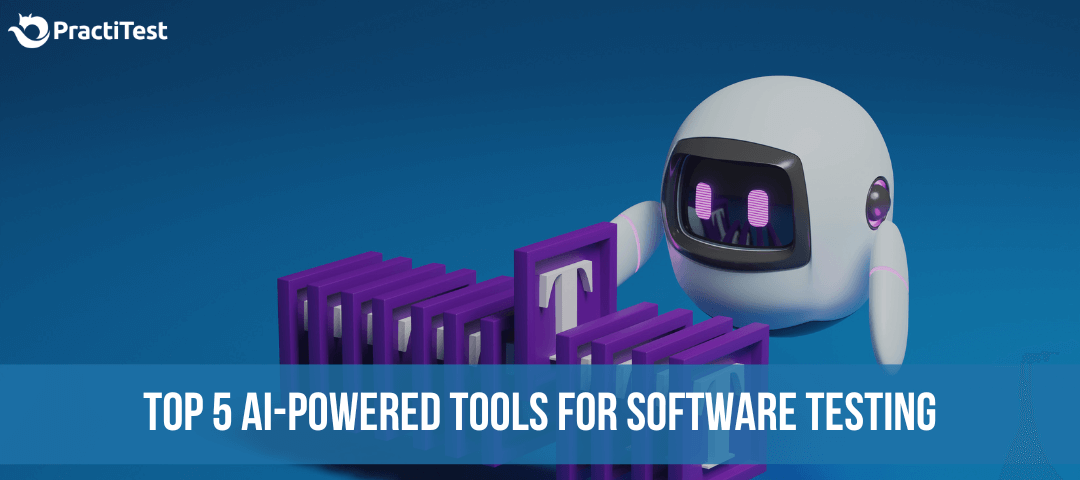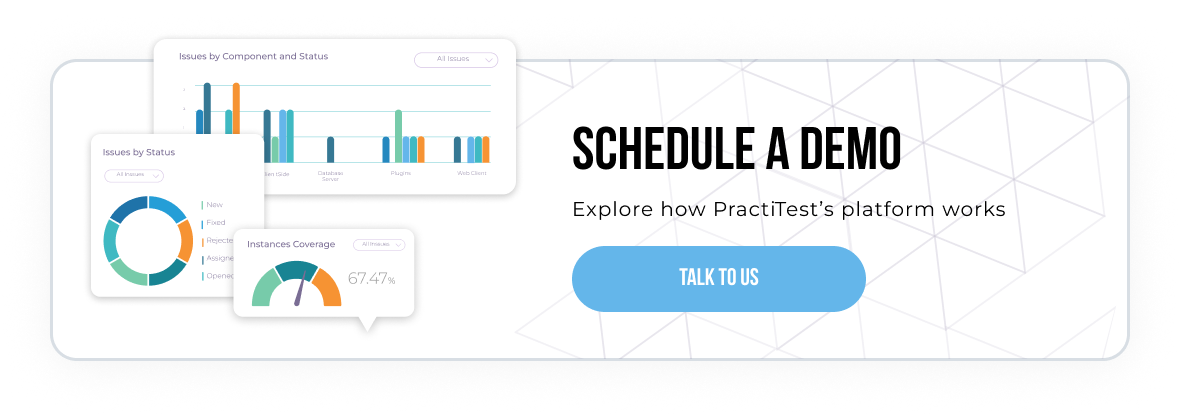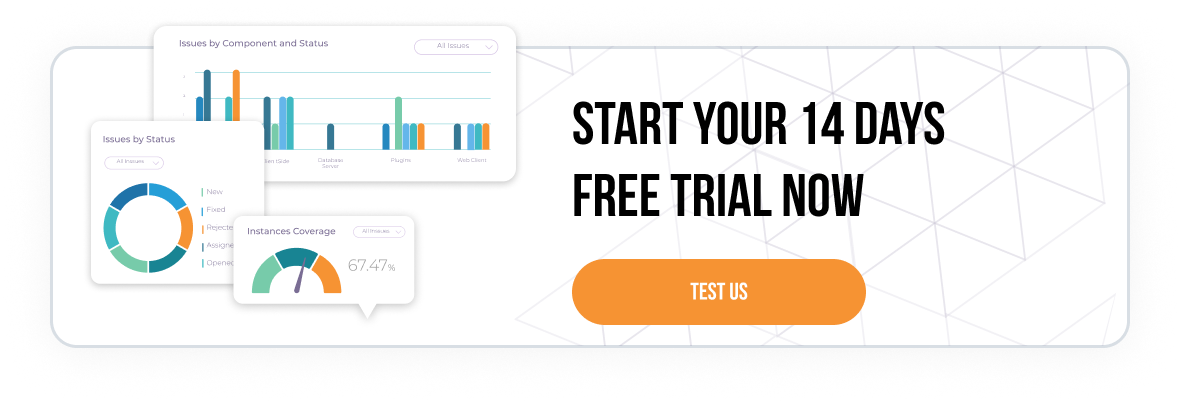In This blog
With the rapid advancement of AI technologies, testing tools are undergoing a transformative shift, integrating new AI-powered features into their systems. However, it’s not just dedicated AI testing tools that are benefiting from AI advancements. Across the spectrum, there are diverse AI tools software testers can leverage, harnessing significant capabilities such as machine learning and natural language processing to enhance testing efficiency, accuracy, and collaboration.
In this article, we delve into the top 5 AI tools software testers can leverage in 2024. We will explore the main benefits of each tool, as well as how their AI functionalities can enhance your testing efforts.

Leveraging AI Tools for Better Testing Efforts
In recent years, the presence of AI has permeated various industries, promising to revolutionize the way we work. While the widespread adoption of AI tools in software testing is still in its early stages, its potential impact on this domain is undeniable. As more companies incorporate AI elements into their software solutions, the utilization of AI in software testing is poised to grow exponentially.
According to the 2024 State of Testing report, 60% of respondents currently do not utilize any AI tools for testing purposes. However, the remaining 40% have already begun to leverage AI tools for various testing activities, including test creation, optimization, and planning. Here are a few examples where AI tools can be used immediately and contribute to the testing efforts:
-
Improved Automation Testing Efficiency: AI-powered automation tools enable more reliable testing, facilitate codeless testing, and accelerate testing cycles, ultimately saving time and resources.
-
Enhanced Test Case Generation: AI algorithms facilitate the creation of relevant and complex test cases without human intervention, streamlining the testing process and ensuring comprehensive test coverage.
-
Test Case Optimization: AI-driven algorithms analyze historical test data and test results to identify redundant or inefficient test cases, allowing testers to optimize their test suites for maximum efficiency and coverage.
-
Better Test Management: AI-enabled test management platforms help manage testing efforts more efficiently. These platforms offer advanced capabilities for organizing, prioritizing, and tracking testing activities, fostering collaboration across development and QA teams.
Top 5 AI Tools for Testers in 2024
In this section, we explore the top five AI tools that testers can leverage to enhance their testing efforts. We’ll evaluate each tool based on different criteria, including a short overview, key functionalities, cost considerations, and potential contributions to the testing process.
#1 ChatGPT
When discussing AI tools, it’s impossible to overlook the groundbreaking impact of ChatGPT. Since its launch in November 2022, this phenomenal tool developed by OpenAI has gained immense popularity, boasting over 100 million weekly users worldwide. And this widespread adoption is not without reason. At its core, ChatGPT is powered by sophisticated NLP models trained on vast amounts of text data, enabling it to understand the nuances of language and generate contextually relevant responses.
Beyond its wide-ranging usage purposes, from generating recipes to providing JavaScript code snippets, ChatGPT holds significant potential for software testers. They can leverage its robust NLP capabilities to streamline various aspects of the testing process, including test script generation, test case optimization, and test data development. Harnessing the power of ChatGPT will simplify the process, reduce the need for time-consuming manual creation, and foster efficiency in testing workflows.
Key Capabilities:
- Test Case & Script Generation: ChatGPT can create relevant and detailed tests including steps, eliminating the need for manual test creation.
- Test Case Optimization: In case you have existing test cases you want to improve, ChatGPT can help enhance clarity and consistency across test cases.
- Test Data Creation: Based on requirements and test cases, testers can ask ChatGPT to create suitable datasets and test data.
Price:
ChatGPT offers four subscription plans for individuals and organizations:
- Free
- Plus - $20 user/month
- Team - $30 user/month
- Enterprise - Price is not publicly available
#2 Applitools
Applitools offers a comprehensive solution for detecting UI issues and inconsistencies across different browsers and devices, including web and mobile applications. Founded in 2015, Applitools utilizes an advanced visual AI engine that mimics human eyes and analyzes screens to identify bugs that may go unnoticed in functional tests or be missed by testers.
Additionally, Applitools intelligently filters out differences that are not considered bugs, ensuring accurate results. This smart automation testing approach enhances accuracy, minimizes human errors, and enables faster detection of visual bugs.
Key Capabilities:
- Visual Testing: Applitools excels in detecting UI issues, ensuring visual correctness and user experience consistency.
- Test Automation Enhancement: Applitools enhances automated visual testing capabilities, allowing testers to detect visual bugs early and fast.
- Cross-Browser and Cross-Device Testing: Applitools facilitates cross-browser and cross-device testing, enabling testers to validate application appearance and functionality across various environments.
Price:
Applitools offers four subscription plans:
- Free - 1 user
- Plus - 3 users, price is not publicly available
- Eyes - 20+ users, price is not publicly available
- Ultrafast Test Cloud - 20+ users, price is not publicly available
#3 TestRigor
TestRigor is a Generative AI-powered test automation platform designed to empower users to create end-to-end tests from an end user’s perspective, aiming to make testing more efficient, accurate, and scalable. With advanced AI capabilities, TestRigor is among leading AI test automation tools by automatically generating and maintaining test scripts, reducing the time and effort required for test case creation and maintenance. Additionally, TestRigor provides integrations with popular CI/CD tools and issue tracking systems, enabling seamless integration into existing development workflows.
Key Capabilities:
- No-Code Automated Test Creation: TestRigor enables manual testers to create tests easily in plain English.
- Supported Multiple Environments: TestRigor supports testing across multiple environments, including cross-browser web, mobile, and desktop testing.
- Integration with CI/CD Tools: TestRigor seamlessly integrates with popular CI/CD tools and issue tracking systems, such as CircleCI, Jenkins, Jira, and more.
Price:
TestRigor offers three subscription plans:
- Free - Public Open Source (all tests and test results are public)
- Private Complete - Starting at $900 per month (unlimited users)
- Enterprise - Price is not publicly available
#4 Mabl
Mabl is a modern test automation platform that leverages machine learning and AI to improve the efficiency and effectiveness of software testing. Founded in 2017, Mabl is committed to streamlining the test automation process, accelerating test creation, and enhancing test coverage. Recognized for its innovation, Mabl was awarded the AI Breakthrough Award for Best AI-based Solution for Engineering in 2023, for the 4th time, solidifying its position as a leader in AI in test automation.
Moreover, Mabl extends its functionality to include comprehensive API testing, empowering teams to execute end-to-end low-code API testing, regardless of their coding experience. In addition to its advanced testing capabilities, Mabl integrates with CI/CD tools and Bug Trackers.
Key Capabilities:
- Auto-Healing Tests: Mabl automatically detects changes in the application under test and updates tests accordingly, reducing the need for manual intervention and improving test reliability over time.
- Intelligent Wait: Mabl dynamically adjusts test execution based on real-time application behavior, enhancing reliability and saving time.
- Visual Change Detection: Mabl identifies and highlights visual differences between different versions of an application’s UI, enabling early detection of unintended changes.
Price:
Price is not publicly available.
#5 PractiTest
PractiTest is an end-to-end test management platform designed to help organizations take control of their testing efforts and manage all testing artifacts, including requirements, tests, and defects, in a centralized hub. By consolidating QA work, processes, teams, and tools into one platform, PractiTest eliminates silos, fosters unified communication, and establishes a single source of truth for testing activities.
PractiTest leverages the power of advanced machine learning algorithms to provide cutting-edge AI-powered features for QA teams. Notably, PractiTest introduced Test Value Score, a unique feature that assesses and assigns a score to each test case, offering a tangible measure of its impact on the testing process. Additionally, the platform introduced Smart Fox, an AI assistant aimed at streamlining the test creation process and saving valuable time for software testers.
Key Capabilities:
- End-to-End Test Management: PractiTest enables centralized management of requirements, tests, and defects, facilitating clear communication and data-driven decisions.
- Test Value Score: This unique feature assesses test case impact, allowing organizations to focus on high-value tests and optimize resources effectively.
- Effortless Test Steps Generation & Optimization: With the Smart Fox AI Assistant, testers can easily generate or optimize test steps, saving time and ensuring clarity across all test cases. Robust Integrations: PractiTest seamlessly integrates with popular tools like Jira, Selenium, and CircleCI, boosting efficiency and facilitating collaboration.
Price:
PractiTest has two subscription plans:
Team - Starting at $49 user/month (for 5 tester licenses) Corporate - Talk to us
Conclusion
In conclusion, the rise of AI tools and integrating them into software testing processes represents a significant opportunity for organizations to enhance testing efficiency, accuracy, and reliability. From AI-powered test automation platforms to advanced test management solutions, these tools leverage machine learning, natural language processing, and other AI technologies to streamline testing workflows and improve software quality.
In the years to come, we can expect AI technologies to continue revolutionizing the field of software testing, offering new opportunities for innovation and improvement. By embracing AI-powered tools and integrating them into their workflows, organizations can accelerate their testing processes, deliver higher-quality software products, and ultimately, drive business success in the digital age.

























